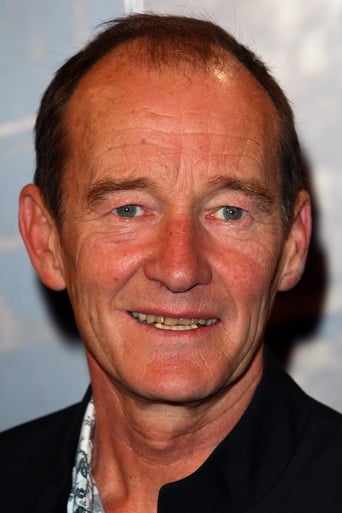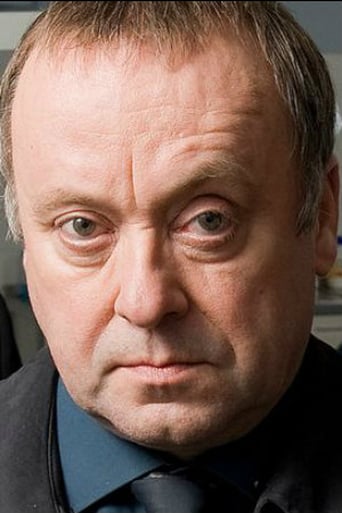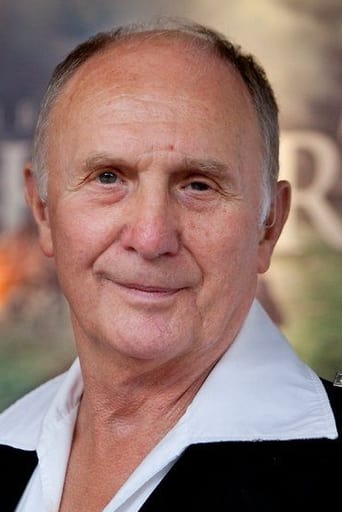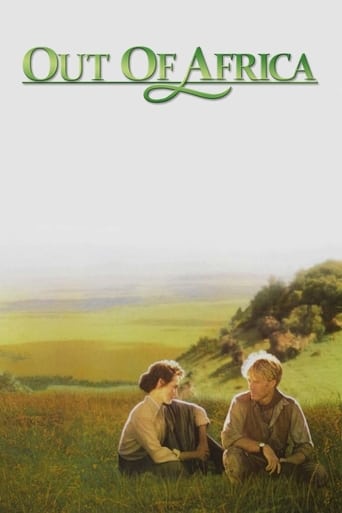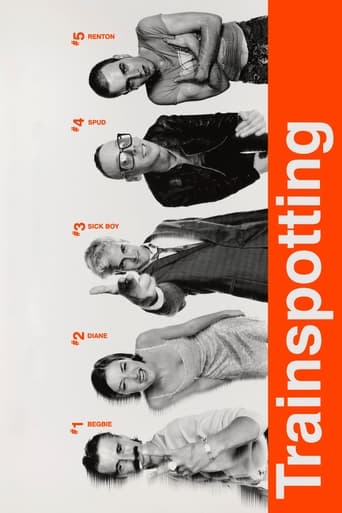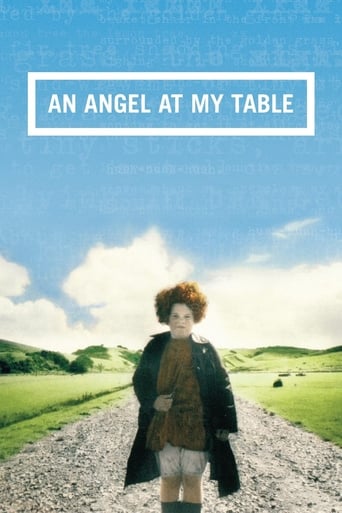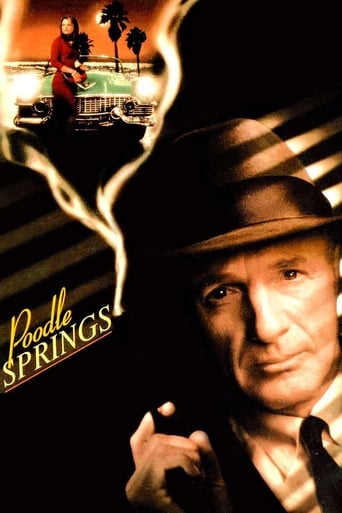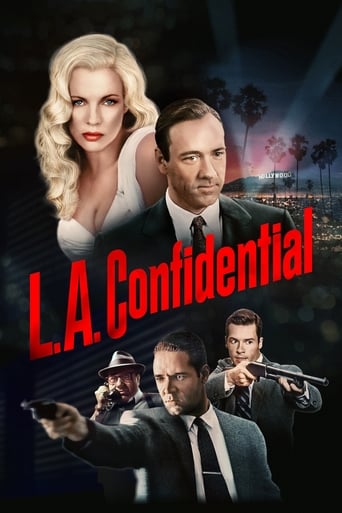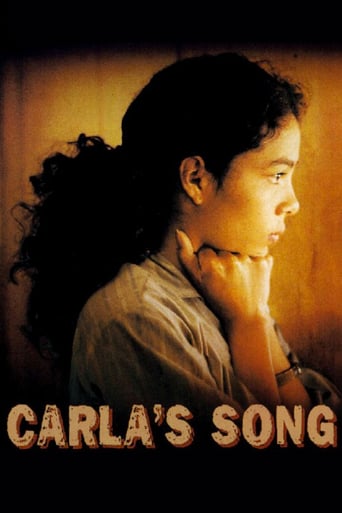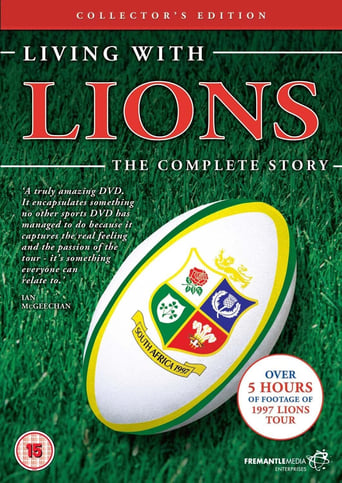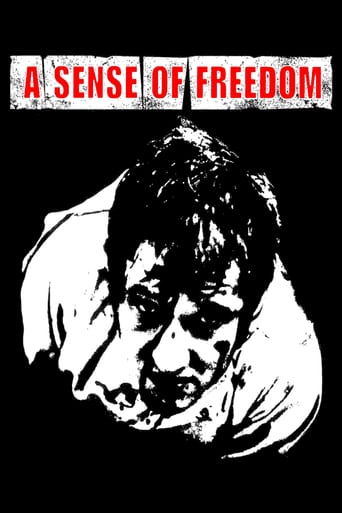
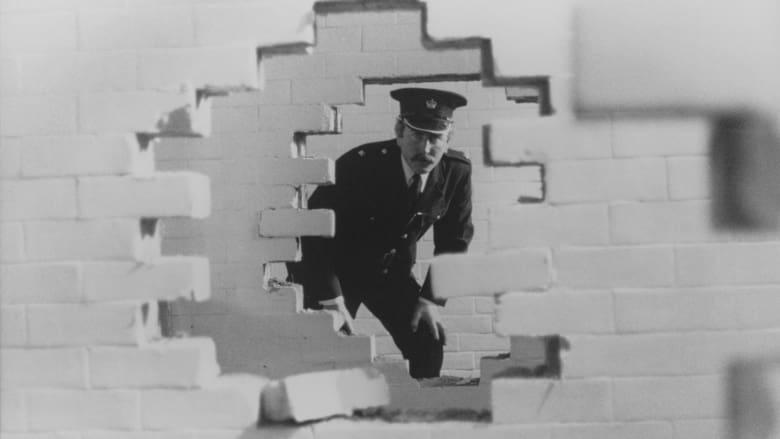
A Sense of Freedom (1979)
The true story of Jimmy Boyle, who was reputed to be Scotland's most violent man.
Watch Trailer
Cast


Similar titles
Reviews
Good concept, poorly executed.
This film is so real. It treats its characters with so much care and sensitivity.
The biggest problem with this movie is it’s a little better than you think it might be, which somehow makes it worse. As in, it takes itself a bit too seriously, which makes most of the movie feel kind of dull.
One of the most extraordinary films you will see this year. Take that as you want.
I became aware of this last November whilst studying British TV Drama in University. I was immediately sucked into the world of Jimmy Boyle. He is to me a fascinating figure. I do not believe in giving criminals a celebrity platform and his criminal activities hold very little interest for me. What does captivate me is his persona and his talent as a sculptor. This man is made of cast iron strong will. This film perfectly captures this and it does it in a way that after 1 Hour and 30 minutes you believe to know the real Jimmy Boyle.Written by native Glasweigian Peter McDougal & directed by long time collaborator and fellow Scotch Scot John MacKenzie we are transported into 1960's Glasgow. We are made vulnerable to society that Jimmy Boyle has grown up in. He is from a deprived working class tenement and we become very aware that he makes a living through his menace. The story is set by presenting him in this light. We move very quickly his life on the outside. Also during this time we also see the good side of Jimmy Boyle. He is well liked and he will give money to the neighborhood kids whose parents wouldn't have money.He finally gets sent down for murder and this is when the film really begins. In Boyles own words he began making his own rules up. He was not reacting so much against the prison system and incarceration but he was reacting to the treatment of prisoners. He feels violated by the staff because he is nothing more than an animal to them and that is the way he treated. His strong will is displayed by the harsh beatings he receives and the amount of time he spends in solitary confinement. During this time we see him evolve psychologically he repeats his name so that he can remember who he is. He contemplates suicide all these scenes are extremely powerful and are very well acted by David Hayman.Hayman is very believable as Jimmy Boyle. His face acting certainly portrays the characters thoughts and emotional turmoil. He is in my opinion a very fine actor and very consistent in everything I have seen him in. Another mention I will give is to the cinematographer Chris Menges who is surely a master of his craft. he has worked with best directors in England and America in his time and it is obvious that his skill of capturing and presenting moving images is up their with Conrad L. Hall and Robert Richardson.Like it or loathe it A sense of freedom should be watched by any budding film makers (actors,writers,directors). Certainly one of Scotlands finest film exports ever.
An interesting movie to say the least.....I watched this film by complete accident and have never discounted the influence it has served in my life.Once the film had been seen I went onto read the book (much more intense) and then the sequel (the pain of confidement). Eventually having lost the movie some years ago I managed to win a copy on Ebay some weeks ago, once again opening me up to the harshness and bleakness this film gave me and still does.A wonderful performance by David Hayman (totally hard, totally cold) and others (watch out for Rab C Nesbitt and Fulton Mackay from Porridge).The film portays the true story of Jimmy Boyle as rather biased towards Boyle forgetting the effect he would have on some peoples life. Do not forget that these prison officers took some almighty provocation from Mr. Boyle and when Mr. Boyle in the movie questions the officers about wether they are any different from him they're answer is "we have families at home waiting for us...."Having watched the majority of British Prison movies (Macvicar, Scum) once is left with the feeling that this is the top one. So sad that is has not enjoyed it's day on DVD yet.I visited Peterhead Prison some years ago and was astonished with it's look, goodness knows only what it was like inside.The brutal nature of the film is also astounding, knife slashing, prison beatings and a quite astonishing deterrent by Boyle to avoiding such beatings (Urgh!).Do such beatings deter, well now adays people believe such punishment has no effect and is unfair on the criminal, funny that as Boyle is now a reformed character preaching to the addicted masses, one could be contraversial and say that his punishment served as his "sense of freedom"
A brutal Man. A brutal system. This is the true story of hardman Jimmy Boyle based on the tough streets of the Gorbals in 1970,s Glasgow. A hard hitting story of a man who,s loan sharking and racketeering eventually leads him to prison where his anti authoritarianism is met with rough justice by the prison wardens. This low budget film proves that money and special effects need not be the key in mastery
Peter McDougall, British televisions most unfllinching writer, skilfully avoids making this a message-movie or an adaptation in a traditional sense. It is partly fictionalised, as it is not a story about criminality, it is about Boyle, a man with a will of iron who defies all society's attempts to dispose of him, and eventually reforms through compliance not defiance. David Hayman is very convincing and there's a wonderful cameo from Hector Nichol as a gatecrasher at a party. The violence is noticeably a long time coming. McDougall never needs to throw as many shocks in as possible, but brings in whatever is needed when it is needed. The icing on the cake is Frankie Miller's score and John McKenzie again showing he can film violence more truthfully than any other director. Wonderfully honest for STV, the emotion reaches more grim levels than McDougall's previous BBC works. Hayman plays the death of his mother and his contemplation of suicide beautifully, but most impressive is his curled up, wounded animal figure on the cell floor saying his name over and over again. This is the way to make a television film.


